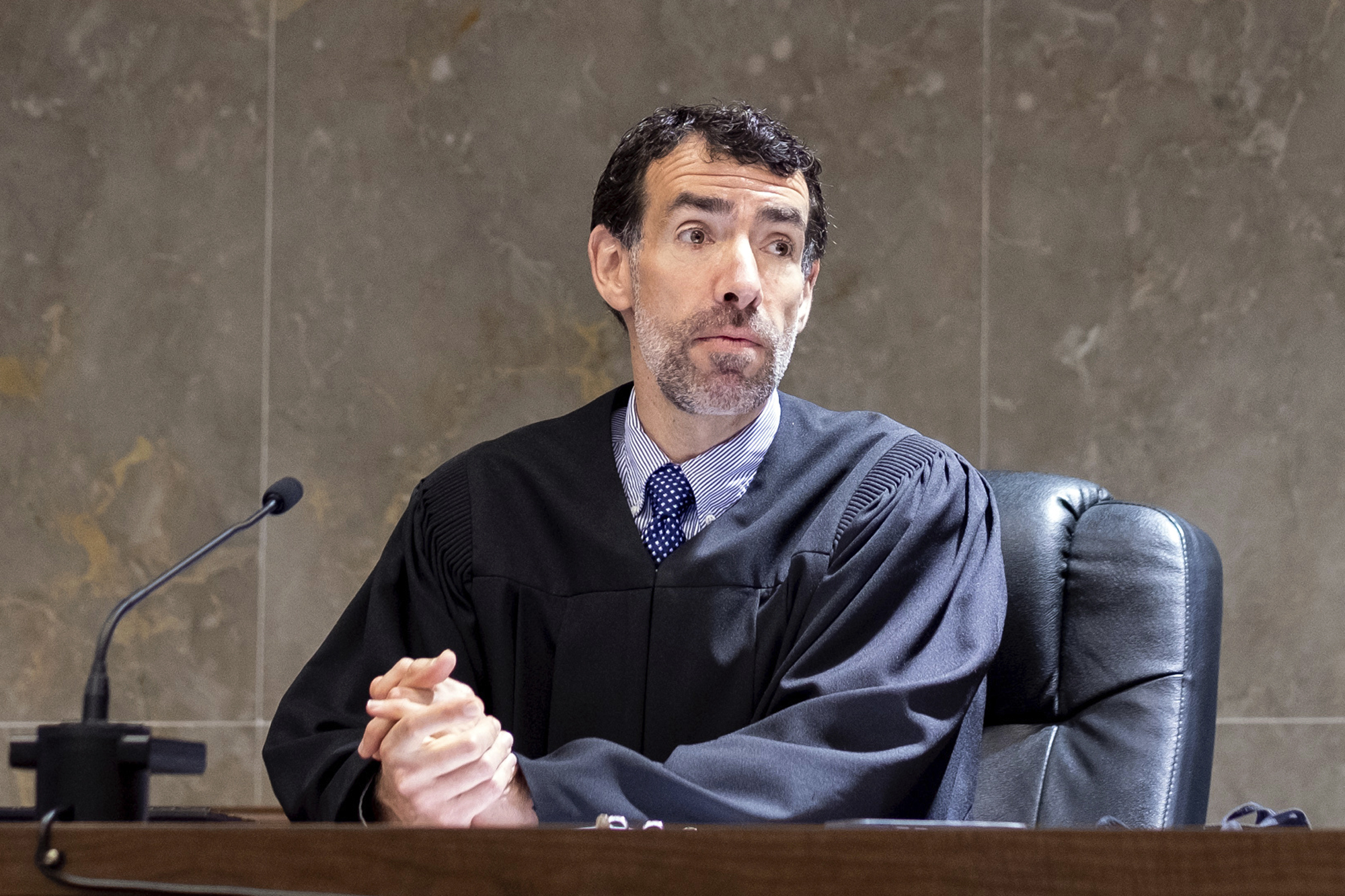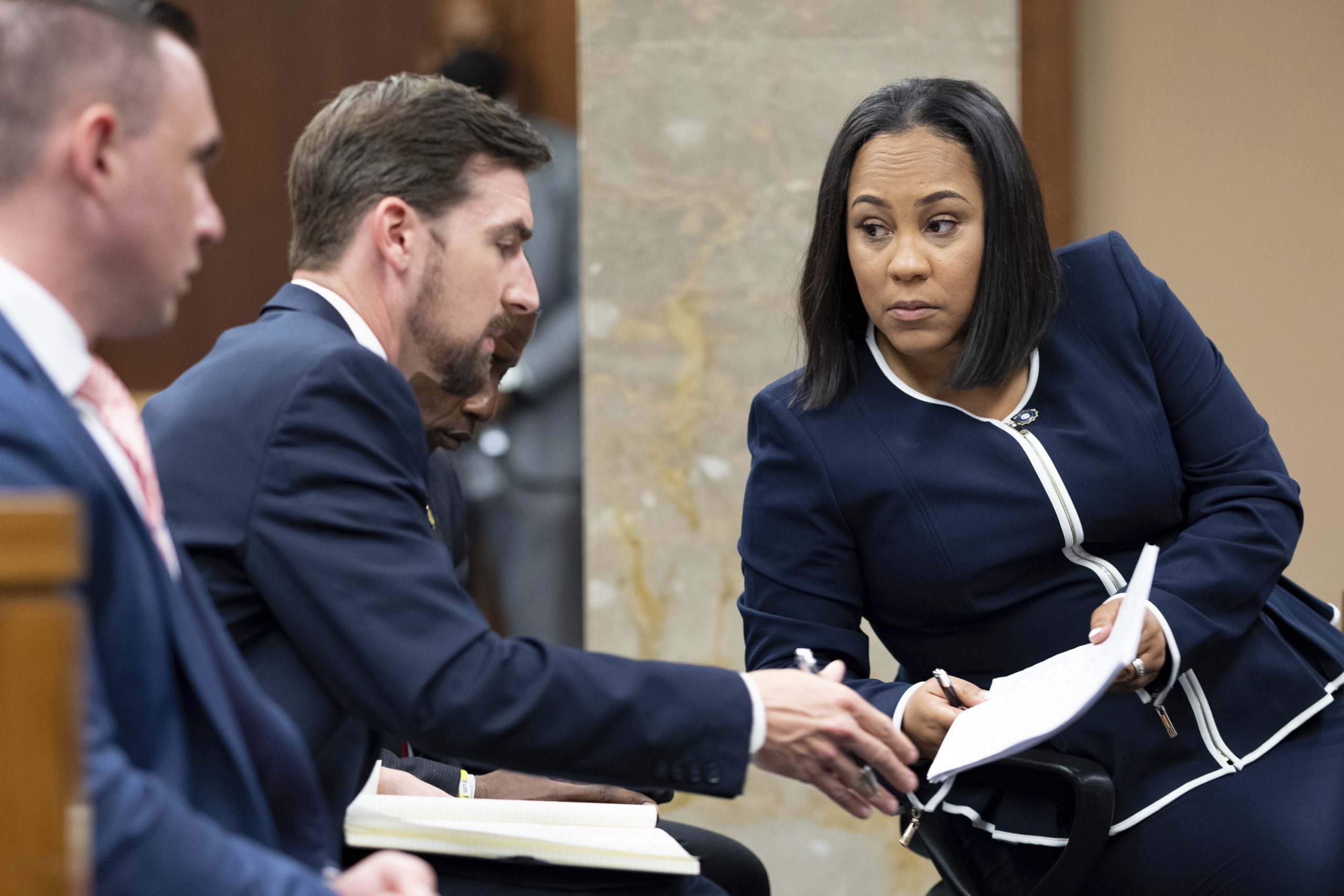“One or more” witnesses may have lied under oath and committed perjury, according to a grand jury that investigated former President Donald Trump‘s actions in Georgia after he lost the 2020 election.
Parts of a report released Thursday morning featured an introduction and conclusion, along with a section in which the grand jurors expressed their concerns and recommended appropriate charges.
FOUR THINGS TO WATCH IN TRUMP FULTON GRAND JURY REPORT ON GEORGIA ELECTION INTERFERENCE
“A majority of the Grand Jury believes that perjury may have been committed by one or more witnesses testifying before it. The Grand Jury recommends that the District Attorney seek appropriate indictments for such crimes where the evidence is compelling,” according to the nine-page report.
The portions of the report released on Thursday provide a narrow look into the findings from 26 members of the public who heard testimony from over 75 witnesses. However, any recommendations of potential criminal charges for specific witnesses will remain undisclosed for now, according to an eight-page order released by Fulton County Superior Court Judge Robert McBurney on Monday.

(AP Photo/Ben Gray, File)
Among the limited details from the report was the jury’s finding that there was no widespread fraud in the state election that could have inhibited Trump from winning.
“The Grand Jury heard extensive testimony on the subject of alleged election fraud from poll workers, investigators, technical experts, and State of Georgia employees and officials, as well as from persons still claiming that such fraud took place,” the report added, noting the 26-member jury agreed unanimously that “no widespread fraud took place.”
Notably, there is an inclusion detailing that no members of the jury were election law experts or criminal attorneys. “The majority of this Grand Jury used their collective best efforts, however, to attend every session, listen to every witness, and attempt to understand the facts as presented and the laws as explained,” the report added.
And while a majority of the report remains non-public, it hints at how the rest of the report is structured.
“We set forth for the Court our recommendations on indictments and relevant statutes, including their votes by the Grand Jurors,” the excerpt said. “This includes the votes respective to each topic, indicated in a ‘Yea/Nay/Abstain’ format throughout.”
The jury was seated in May 2022 as part of Fulton County District Attorney Fani Willis’s (D) criminal investigation into allegations of election interference, which first began in February 2021.
Willis’s investigation was prompted in part by Trump’s Jan. 2, 2021, phone call to Georgia Secretary of State Brad Raffensperger, in which Trump asked him to “find 11,780 votes,” the precise number Trump needed to overcome his defeat by then-candidate Joe Biden.
Trump’s presidential campaign responded to the report’s release in a statement Thursday afternoon, writing that the former president “did absolutely nothing wrong.”
“The President participated in two perfect phone calls regarding election integrity in Georgia, which he is entitled to do — in fact, as President, it was President Trump’s Constitutional duty to ensure election safety, security, and integrity,” Trump spokesman Steven Cheung wrote in the statement.
Cheung added that officials and attorneys who were on the line during both calls offered no objection to his words or “even slightly protested” to what was being said.
Another major area of interest for local prosecutors stems from a group of 16 Georgia Republicans who signed a certificate in December 2020, falsely claiming that Trump won the state’s election and that they were Georgia’s “duly elected and qualified” electors.
Among the over 75 witnesses brought in to appear before the grand jury were some of Trump’s closest allies and supporters of his efforts to overturn the election results. Such witnesses include Trump’s former attorneys Rudy Giuliani, John Eastman, and Sen. Lindsey Graham (R-SC), who unsuccessfully fought his subpoena up to the Supreme Court.

Willis sent a letter last summer informing some people, including Giuliani and the 16 fake electors, that they could face criminal charges.
In response to Giuliani’s notification of his status as a target of the investigation, he defended himself and denied wrongdoing. “I appeared in Georgia as attorney for Donald J. Trump — so I’m going to be prosecuted for what I did as an attorney?”
Willis told McBurney on Jan. 24 that a decision on whether to bring criminal charges over the investigation was “imminent.”
CLICK HERE TO READ MORE FROM THE WASHINGTON EXAMINER
She previously asked the judge to keep the report sealed in order to protect a potential criminal investigation and shield the rights of possible “defendants” in the case. It’s possible that no charges will arise from the investigation.
Read the full nine-page report below:

